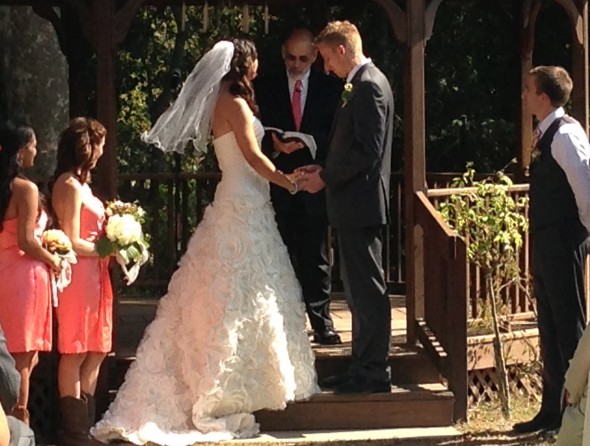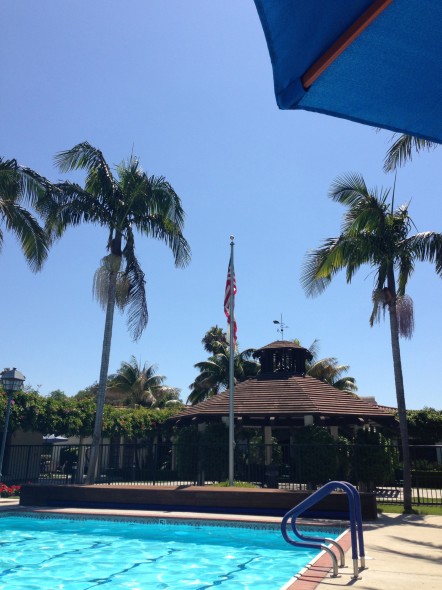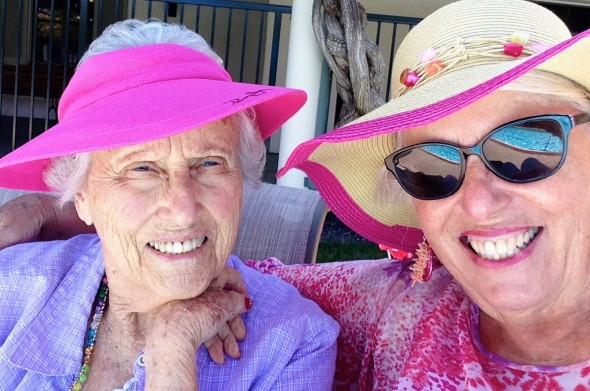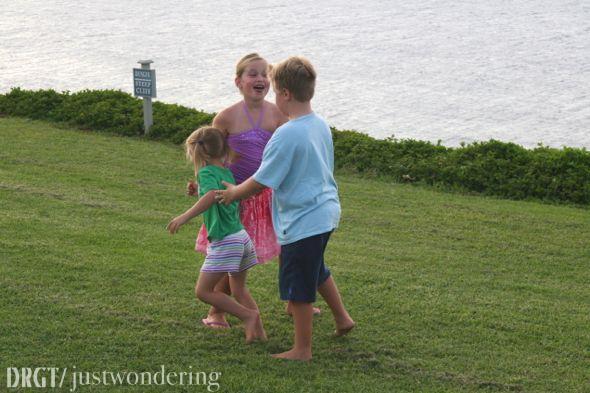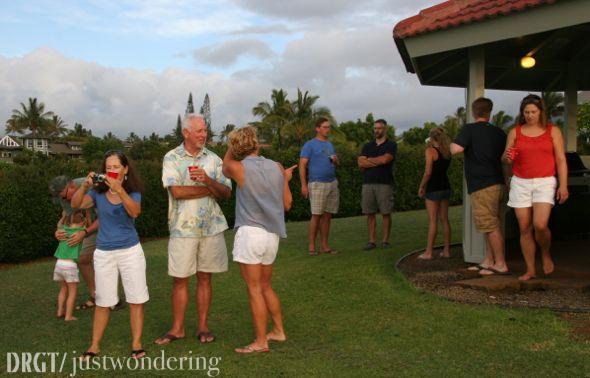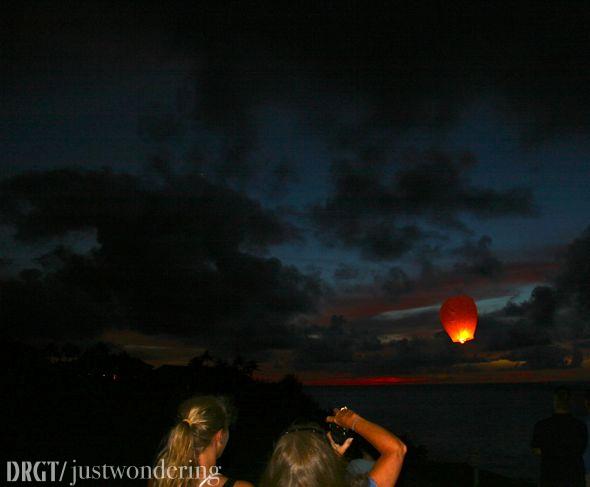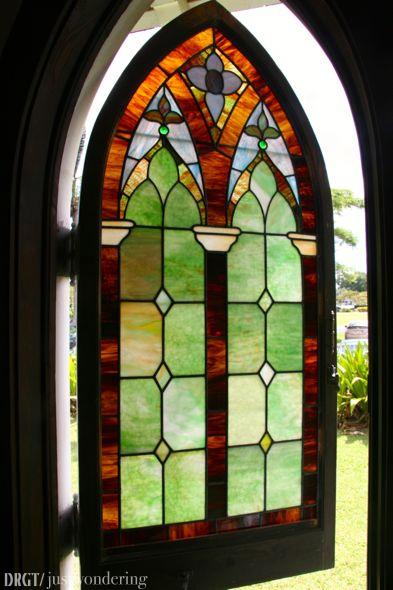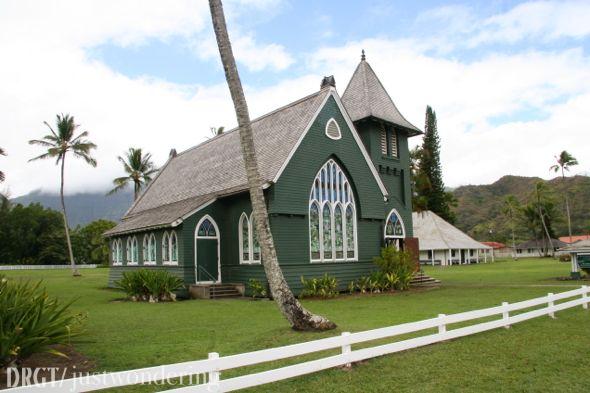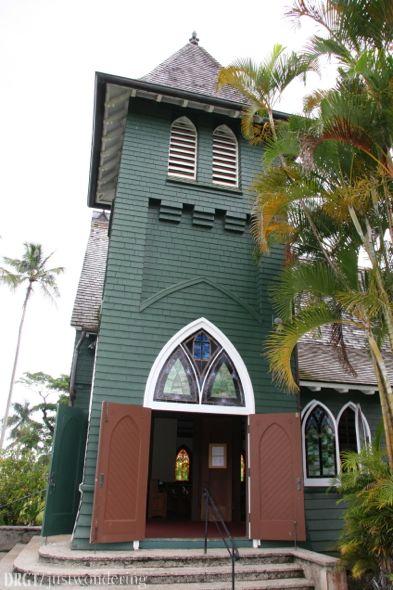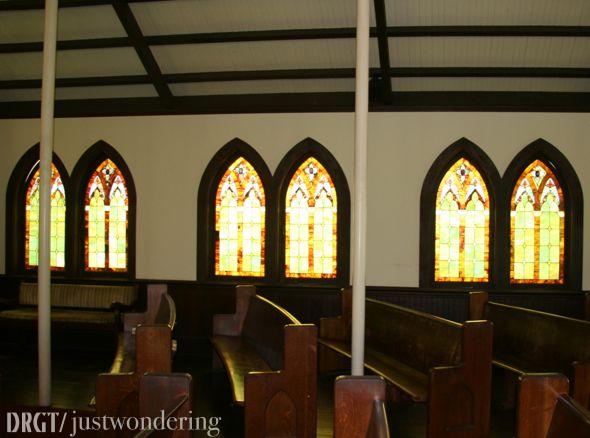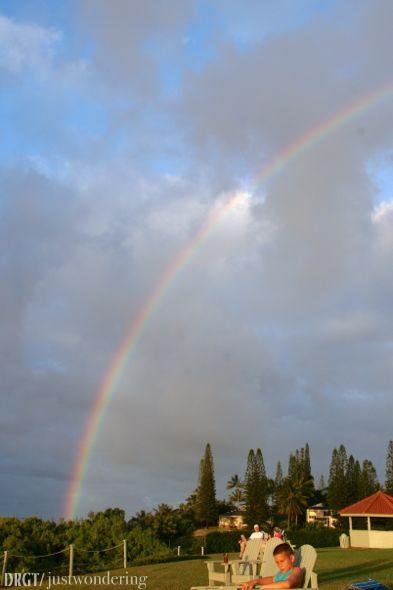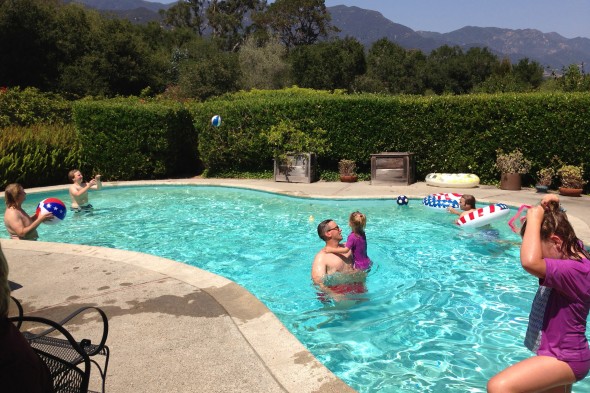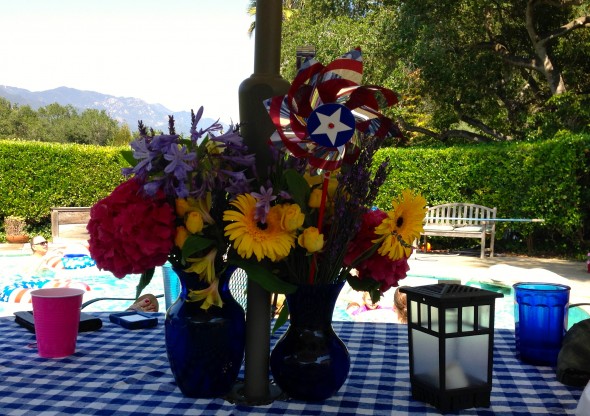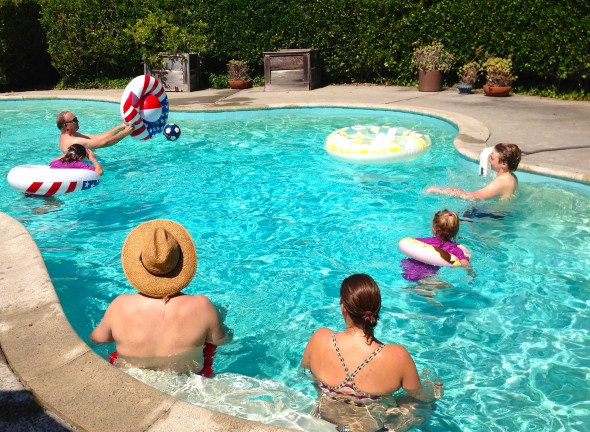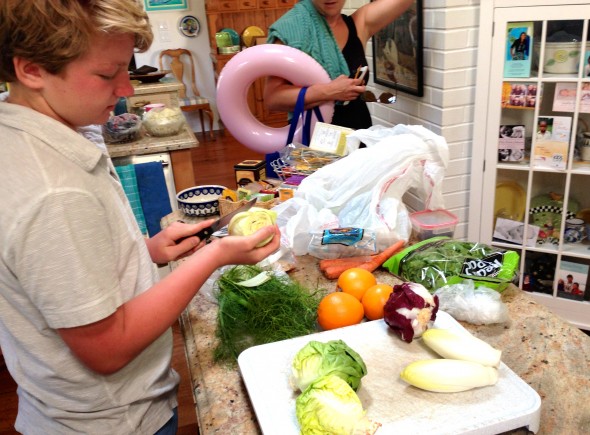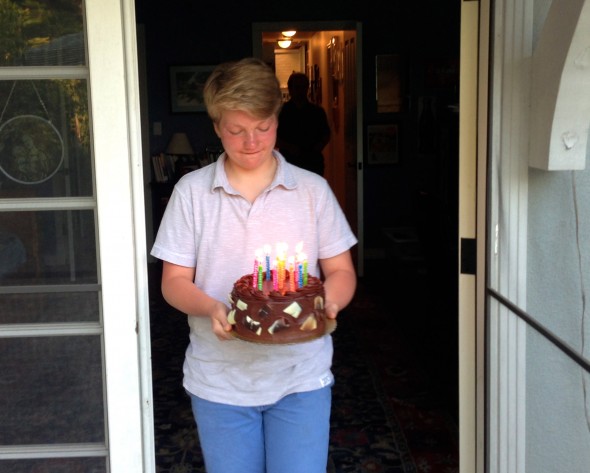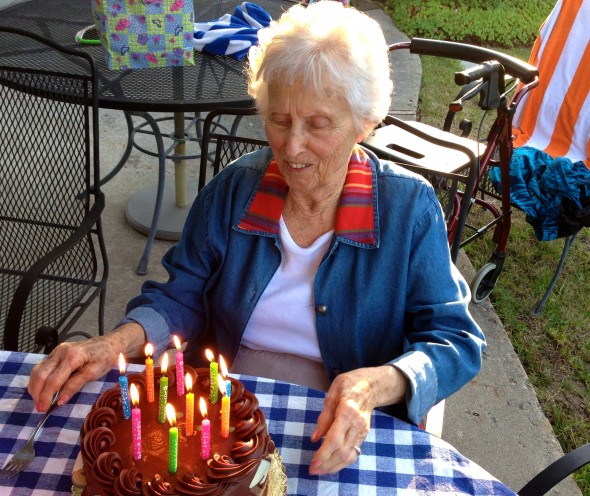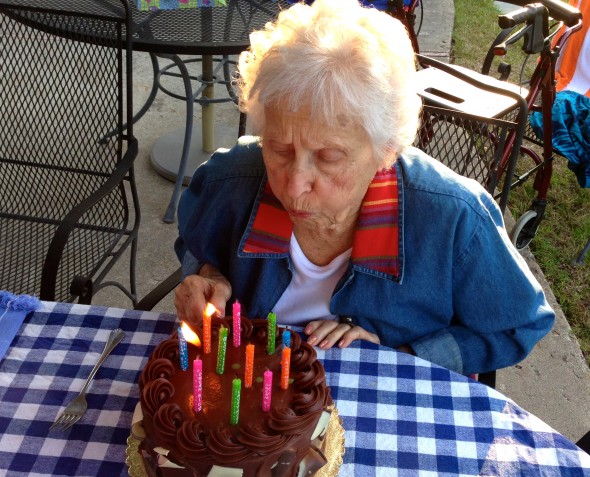That Emily Freeman, such a talented and fun lady. She started a meme a couple of months ago that I’ve been dying to try, so this is my first entry for the link that goes up tomorrow. August started so very well and is ending . . . not so much.
Most of these pictures are from item #2 on this list, except for the wedding picture, the stained glass church window from Hanalei, Kauai, and the last 2 miscellaneous shots from the same paradise.
1. A personal calendar is truly only effective if you LOOK AT IT. (The editors at A Deeper Story/Deeper Family are very kind people, who forgave my forgetfulness and inattention, even providing space for an essay written very late indeed. Thank you, Megan Tietz!)
2. Playing miniature golf in Kilauea, Kauai is a whole lot more fun than playing miniature golf almost anywhere else on planet earth. Yowza, it was beautiful. Who knew you could combine a mini-golf course with a botanical garden and SCORE with both.
3. Saying good-bye to paradise gets harder to do each time I do it. For the first time I can ever remember, I did not want to come home from vacation. Sigh.
4. Getting airline seats early enough to secure the 2-seats-by-the-emergency-exit-in-a-3-seat-section saves the day. Literally.
5. It is possible to undo 4 weeks of restful vacation time with 9 medical visits during the first 10 days you’re back home. NINE, people. Nine.
7. Discovering that 27 adults in your congregation of about 300 people are willing to come to quarterly meetings in support of your children’s and student ministries team is one of the single most heartening things you can discover about your community. Wow.
8. Rediscovering that meeting with people for spiritual direction is a privilege, a joy and a challenge, all rolled up into one, helps soothe the trials and tribulations of re-entry. I met with my five directees this year within hours (well, really, it was days) of returning home and each one of them is a gift in my life.
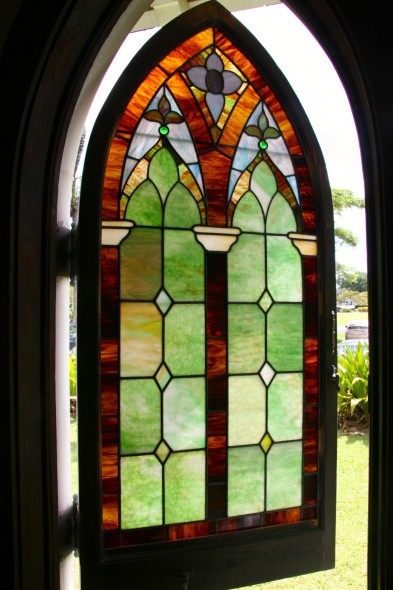 9. Seeing the daughter of a dear friend and former colleague marry a good man – outdoors and in a park, no less – provides nourishment for the soul that lasts a long time. (And the actual meal was delish, as well.) Also? Cowboy boots look grand with sassy coral-colored bridesmaids’ dresses!
9. Seeing the daughter of a dear friend and former colleague marry a good man – outdoors and in a park, no less – provides nourishment for the soul that lasts a long time. (And the actual meal was delish, as well.) Also? Cowboy boots look grand with sassy coral-colored bridesmaids’ dresses!
10. If you sit with someone for a Google+ chat, said chat can be videotaped and PUT ON FACEBOOK. Who knew?? Good thing I love Deidra Riggs, because she’s the one who put us out there. It was a privilege to talk with these four women about a film that touches on so much important stuff. (Lee Daniels’ The Butler)
11. Having dinner with all your children and all your grandchildren (including the ‘big boys’ who are now in college) is the best reward ever for anything. Such great people.
12. The Telluride Film Festival is a BIG DEAL and they keep their schedule tightly under wraps. But . . . I have a copy of it on my computer because. . . TA DA!!! . . . my #1 grandson got the film he was the cinematographer for into the festival! This is good news, my friends. And this ‘student’ film? One of the best short dramas I’ve ever seen anywhere. It is that good. (And it is featured Saturday and Sunday morning at the festival. YES!)
All in all, August has been a good month, despite all the medical crap in and around everything else. Every single test I had came back just fine – and there were a heckuva lot of those suckers. Thanks be to God – and to those vigilant doctors, too.








